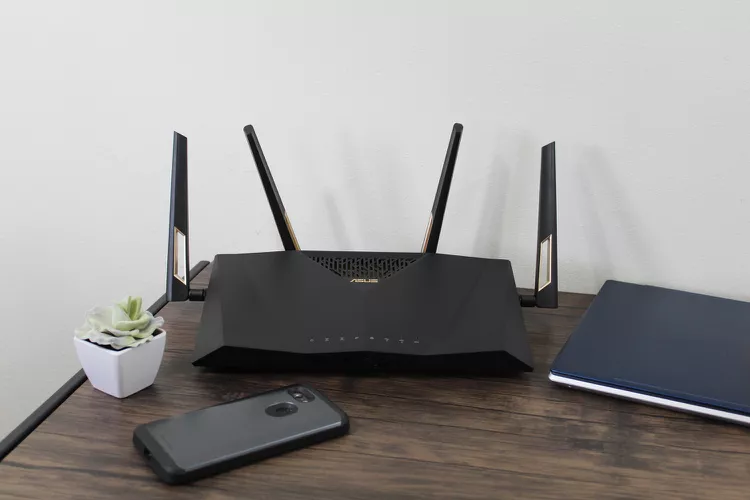When setting up a home Wi-Fi network, you need a wireless router. Selecting the right router can be a challenge as there are hundreds of models offering various features.
We've been using wireless routers at home for many years and have accumulated a wealth of experience in testing different options. We've put together this buying guide to help you determine which wireless router is best suited for your budget.

What is a Wireless Router?
A Wi-Fi router is a computer networking device that broadcasts internet signals from a modem, allowing you to wirelessly connect devices to the internet. Some modems have built-in routers, but if yours doesn't, you'll need to connect a router to access the internet via Wi-Fi.
5 Things to Consider When Buying a Wireless Router
Remember, the performance of your network devices (both router and modem) is constrained by your Internet Service Provider (ISP). To enjoy all the benefits of a high-end router, you need an internet plan that matches the capabilities of the high-end router.
There are hundreds of router models, but these are the key factors to consider:
Price
Speed
Wi-Fi Coverage Range
Availability
Brand
At the very least, ensure your device supports the latest Wi-Fi generation (802.11ac) and has rated speeds higher than 25 Mbps. Assess your needs, such as streaming videos and online gaming, and the different hardware designs of each major model. If your router needs to cover multiple floors, consider using remote routers or Wi-Fi range extenders.
How Much Should You Spend on a Wi-Fi Router?
Comparing prices when purchasing routers requires patience and attention to detail. Router A might cost twice as much as Router B, but the differences between them might be crucial for some while irrelevant for others.
Price Range Possible Scenarios
$50-99 For individual users or small families living in apartments or small homes, suitable for video streaming, video calls, and other basic online activities.
$100-300 For larger families and more intensive online activities like high-speed online gaming and live streaming.
$300-$400+ Perfect for large buildings with a large number of users. High-end models often come with additional security features.
The main factors determining the price of consumer broadband routers include:
Wi-Fi Generation: 802.11ac routers have a higher cost compared to previous 802.11n models.
Speed Grades: All else being equal, routers claiming higher data rates fetch higher prices than routers with lower rates. For instance, a 600 Mbps router with 802.11n will cost more than a model configured for 300 Mbps.
Industrial Design: Home routers traditionally sport a plain boxy design, with some antennas protruding from the top or sides. Vendors are gradually introducing different shapes, rounded edges, various colors, and materials to try and distinguish their products and command higher prices.
Brand Name: There are many brands of consumer-grade routers. Based on the vendor's reputation, more well-known brand names might come with a higher price tag.
Temporary Price Drops: Like many consumer electronics, sellers occasionally discount router prices. Buying routers during big sales can save costs.

How Fast Should a Wi-Fi Router Be?
Wireless routers advertise their speed in Megabits per second (Mbps). Early consumer Wi-Fi models offered 11 Mbps, followed by mid-range 802.11g routers at 54 Mbps, 802.11n routers ranging from 150 Mbps to 600 Mbps, and now 802.11ac routers offering 1 Gbps or more.
It's not just about routers with the highest Mbps rating. In practice, the actual performance you'll achieve tends to average lower than the maximum advertised on the packaging.
Actual router speeds depend on factors such as the number of devices on the network, physical interference that weakens wireless signals, and the distance between connected devices and the router.
A high-speed router cannot accelerate a slow internet connection. For example, if your ISP provides a 25 Mbps service, a router with speeds exceeding 1 Gbps will only operate at 25 Mbps.
The router determines the maximum speed of the network, and it should match the speed provided by your ISP, considering the slower of the two. So, if the router offers super-fast speeds but your ISP provides limited bandwidth, the router will deliver the reduced bandwidth amount. Similarly (i.e., even with fast bandwidth, a slow router will provide slow speeds).
To maximize the speed of your wireless network, purchase a router with speeds at least as fast as what your ISP provides.